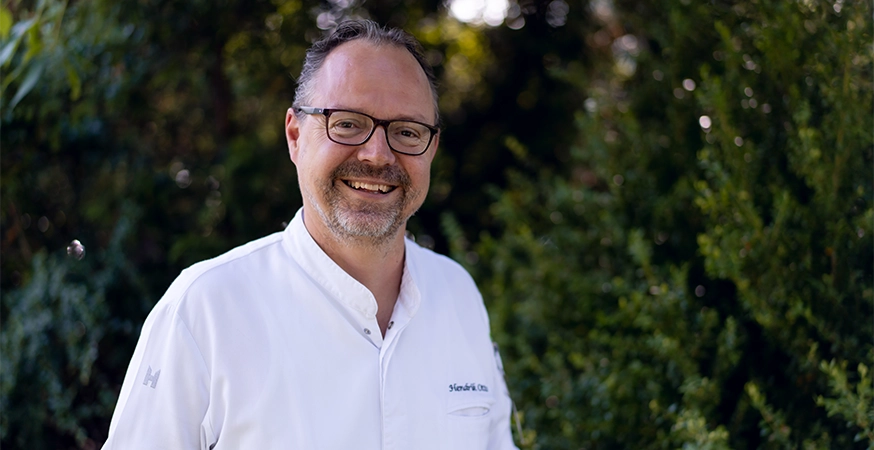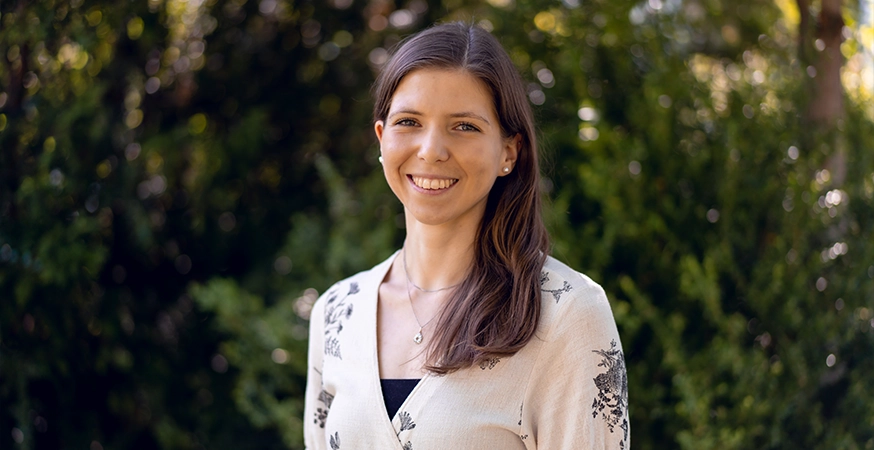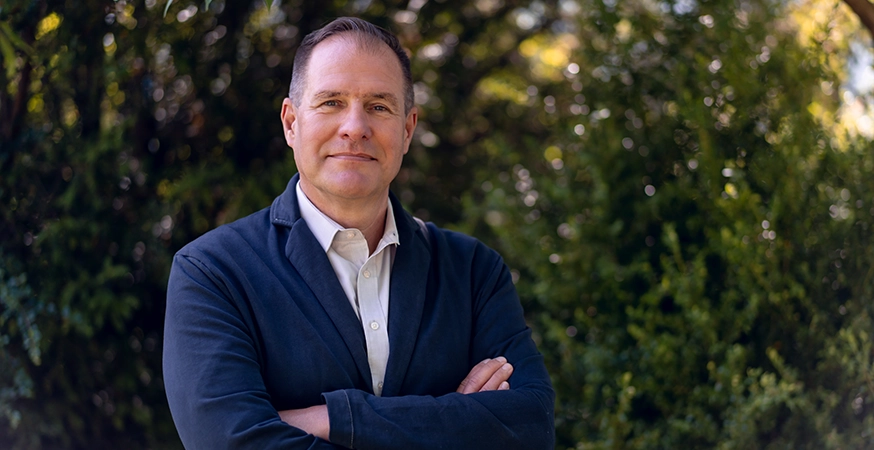helios-story-2
Sustainable catering
Nutrition has a major influence on our health. It can help to improve our general state of health and protect against the onset of illness. It is an important companion on the road to recovery: a good nutritional status can positively influence the success of therapies and even shorten the length of a hospital stay. A balanced and healthy diet therefore has considerable health benefits and plays a significant role in the care of patients in our clinics. In the further development of our range of meals, we therefore attach great importance to the seasonality and regionality of the raw materials used, the reduction of animal products and thus the expansion of the range of vegetarian and vegan dishes, the increased use of raw materials from organic production, resource-saving processes in food supply and the reduction of food waste and packaging waste.
Hendrik Otto (Head of Quality and Sustainable Culinary)
Verena Kaiser (Ecotrophologist) and
Till Braumann (Head of Catering)
Mr. Otto, you came to Helios from the Adlon Hotel in Berlin as a 2-star chef and multiple award-winning head chef. What motivated you to do this - and what ambitions did you have when you joined Helios?
I have enthusiasm and passion for the topics of food quality, development, and sustainability in the hospital context, and I wanted to take on a new challenge! My goal is to work with our team to implement healthy, high-quality, sustainable catering for our patients and also to improve the offerings in the hospital cafeterias for our employees and guests.

... and then imagination met reality: what have you been able to achieve since then for the catering for patients and staff?
Together with our COO Enrico Jensch and Till Braumann, we rolled out newly developed menus with healthy and, above all, sustainable dishes for all patients in our clinics in 2023. We can now label all our dishes with their carbon footprint and water footprint. This is the basis for reducing the carbon and water footprints of our dishes in the future. At the same time, we are continuing to expand our offerings for employees and guests in the Helios cafeterias, with a focus on sustainable and vegan dishes. We have developed a vegan meal plan with our partner PlanetV that can be offered at all Helios cafeterias.
Ms. Kaiser, why is good nutrition in hospitals important? From a scientific point of view, what is the best nutrition for patients?
The important thing is that nutrition can be a decisive preventative factor, before illnesses develop. It also helps to improve general health and protects against the risk of illness recurring. It is an important companion on the road to recovery: a good nutritional status can have a positive influence on the success of therapies and even shorten the length of a hospital stay. A balanced and healthy diet therefore has considerable health benefits. Overall, the “best” diet fulfills the energy and nutrient requirements and takes into account the specific problems of the illness in question. We try to support this by creating a healthy range of meals that meets as many requirements as possible and thus benefits patients with a wide variety of illnesses. Plant-based products are of great importance here because they contain many vitamins, minerals, and secondary plant substances.

Mr. Braumann, what are the structural barriers to sustainable catering at Helios? How do we manage to become more sustainable in the long term?
The biggest challenge was and is the sheer size of food supplies at Helios – we provide over 20 million meals a year for our patients! Because we pursue very high quality standards, we work with various manufacturers throughout Germany who prepare the lunches according to our strict specifications and recipes.
We use the cook and freeze method: The food is delivered frozen to most clinics, where it is then regenerated, i.e. gently cooked to completion using a modern induction system. This system is particularly energy-efficient and therefore both economical and sustainable. Our task is therefore to offer high-quality, good tasting, and sustainable products that are suitable for these processes and retain their nutrients. This is something you can see and taste.
Are seasonings or other ingredients added during the induction process?
We do not use any flavor enhancers or preservatives in our lunches, with the exception of nitrite curing salt, and also no artificial colors or flavors. Today, we use significantly more organic products, regional and seasonal products, and less meat overall. We are also setting trends. We are expanding our vegan options in line with increasing demand. Our cafeterias are also increasingly offering healthy and sustainable dishes. A vegan diet has a positive impact on the environment, as plant-based foods require fewer resources such as land, energy and water to produce compared to products of animal origin. Therefore if we use more plant-based food instead of animal-based food, we can reduce our environmental footprint and become more sustainable in the long term.
Which projects are the most important for the near future? What can staff and patients look forward to?
Hendrik Otto: We have high ambitions to make our catering even more sustainable. Being able to label our dishes with sustainability information is a good start – now it's about adapting the individual dishes and using more sustainable ingredients. This includes using regional ingredients, but also looking at the sourcing of raw meat and fish. Here, we want to define which farming methods are used. We want to further increase the proportion of organic products in our catering.
Verena Kaiser: We want to create more sustainable, plant-based, and organic options in the cafeterias and for our employees. We have had an organic vegan meal plan here since 2023 and added organic vegan ice cream as a pilot project in 2024.
Till Braumann: One thing is certain: we are constantly developing our catering at Helios. We focus on the requests and needs of our patients, and the food is always delicious, healthy, and consistently more sustainable!



